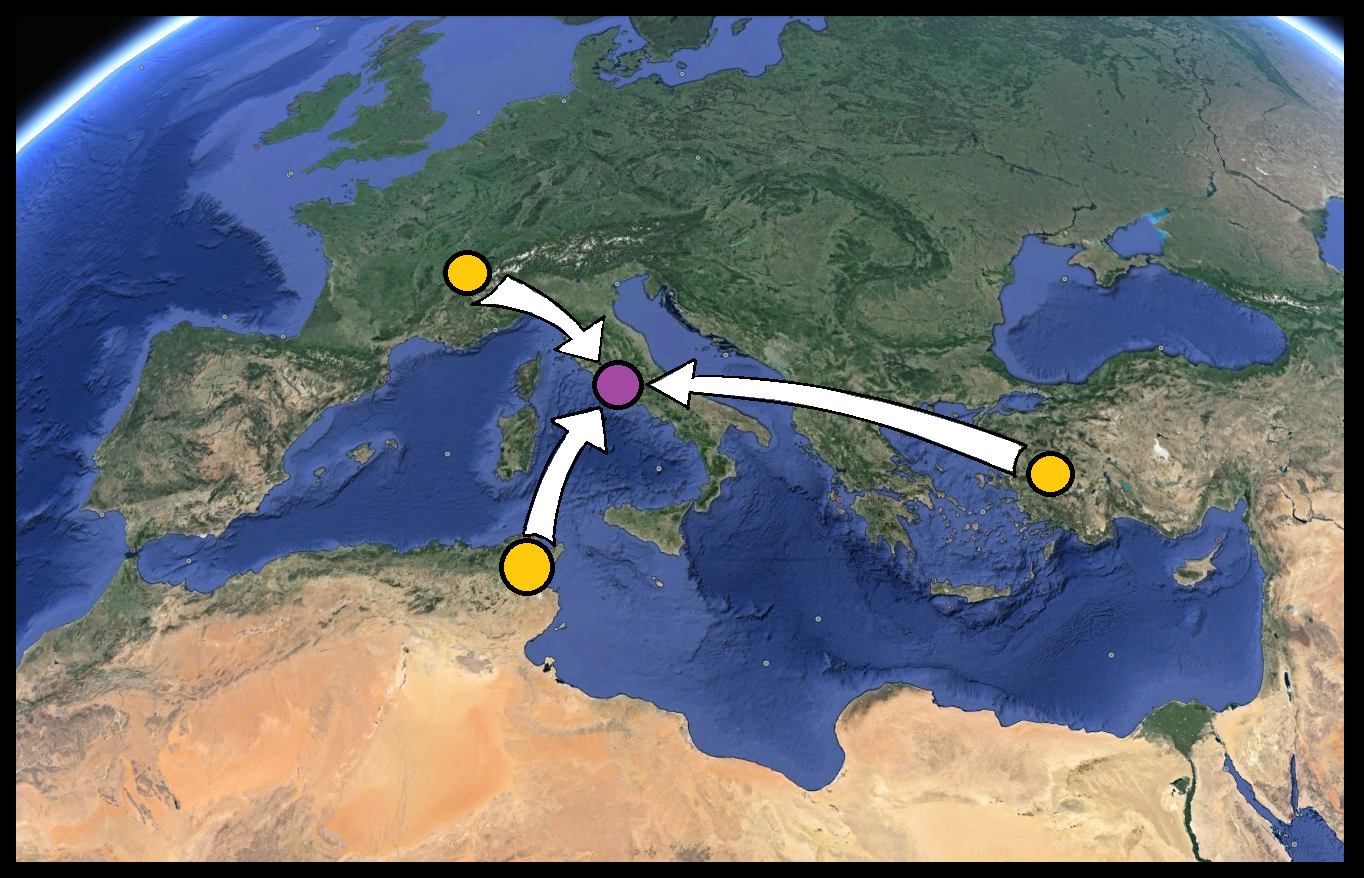In the previous note I surveyed the statements
of the early Popes themselves. Those
quotes seemed to express the idea that they were the successors of Peter and
had a special ministry to care for the entire Church.
But I closed with a question; was this
ministry recognized by others?
We will conclude this series with two notes
addressing that question. Today we will
focus on three of the earliest witnesses.
Ignatius’s Greeting: Turkey, 110AD
First we will look at the letters of Saint
Ignatius of Antioch. As I’ve mentioned
elsewhere, he was a bishop who was taken from Antioch to Rome for his execution. During this journey he wrote several letters
to local churches along his path.
For most of those letters, he began by saying
something like, “To the church at [location], which has obtained mercy from
Jesus, and is worthy of happiness, I greet you.”
But in his letter to Rome, he began:
“The Church which is
beloved and enlightened by the will of Him that wills all things which are
according to the love of Jesus Christ our God, which also presides in the place
of the region of the Romans, worthy of God, worthy of honor, worthy of the
highest happiness, worthy of praise, worthy of obtaining her every desire,
worthy of being deemed holy, which presides over love, is named from Christ,
and from the Father, which I also salute in the name of Jesus Christ." -
Epistle to the Romans, 110AD.
This highly elevated level of praise for the Church at Rome indicates
something special about it. Most notably
the language of Rome “presiding” and being worthy of obtaining its desires.
Irenaeus Points to the Standard: France,
180AD
Irenaeus was the Bishop of Lyons,
France at the close of the second century. His lone surviving work is a
massive tome called “Against All Heresies”. In it he notes that heresies
are most reliably refuted by referring to the teachings present in the church at
Rome:
"Since, however, it would be very tedious [] to reckon
up the successions of all the Churches, we put to confusion all those who [] assemble in unauthorized meetings by
indicating that tradition derived from the apostles, of the very great, the
very ancient, and universally known Church founded and organized at Rome by the
two most glorious apostles, Peter and Paul.
As also by pointing out the faith
preached to men, which comes down to our time by means of the successions of
the bishops. For
it is a matter of necessity that every Church should agree with this Church, on
account of its pre-eminent authority." - Against Heresies, 3:3:2, 180AD.
Cyprian Appeals
for Unity: Carthage, 250AD
Cyprian was the
Bishop of Carthage in the middle of the third century. Reading his biography reveals just how
tumultuous things got in the early church.
During his time there
was a schism in Rome when the validly elected Pope Cornelius was opposed by a
false claimant named Novatian. Cyprian
wrote a letter addressed to those who had split away from Cornelius to join the
usurper. He wrote:
“And though to all His Apostles He gave an equal power yet did He set up one chair, and disposed the origin and manner of unity by his authority. The other Apostles were indeed what Peter was, but the primacy is given to Peter, and the Church and the chair is shown to be one. And all are pastors, but the flock is shown to be one, which is fed by all the Apostles with one mind and heart. He that holds not this unity of the Church, does he think that he holds the faith? He who deserts the chair of Peter, upon whom the Church is founded, is he confident that he is in the Church?” - Treatise 1: The Unity of the Church, 4, 251AD.
A
year later Cyprian had some problems with a band of heretics claiming to follow
the true bishop of Carthage, who was
really a usurper. The heretical group
sent emissaries to Rome in an attempt to get the approval of Pope
Cornelius. Cyprian also sent a letter sent
a letter to Pope Cornelius saying:
“After such things as
these, moreover, they still dare — having appointed a false bishop — to set
sail and to bear letters from schismatic and profane persons to the throne of Peter, and to the chief church whence priestly
unity takes its source.” -
Epistle to Cornelius, 19, 252AD
Now,
astute readers may note that this is the same Cyprian whom I mentioned last
time as objecting vociferously to Pope Stephen’s decision on the baptism of
heretics. While he was loud and
disrespectful, Cyprian did not deny that Pope Stephen held the office of Peter
and the keys.
Taking a Pause:
We’ve
covered a few of the early witnesses concerning the ongoing ministry of Peter
through his successors. There is more
data to look at, but for the sake of length we will take a pause here.
When
we return, we’ll look at some of the witnesses from the fourth century of
Christianity – particularly some names you may be familiar with.
See
you then. [Link!]



No comments:
Post a Comment